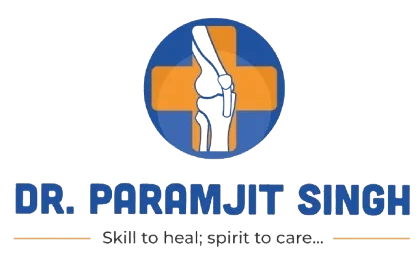Shoulder Conditions
Rotator Cuff Tear
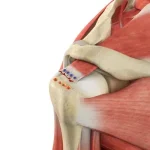
The rotator cuff is a group of tendons in the shoulder joint that provides support and enables a wide range of motion. A major injury to these tendons may result in rotator cuff tears. It is one of the most common causes of shoulder pain in middle-aged and older individuals.A rotator cuff tear may occur with repeated use of the arm for overhead activities, while playing sports, or from a motor accident.
Arthritis of the Shoulder
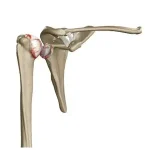
The term arthritis literally means inflammation of a joint but is generally used to describe any condition in which there is damage to the cartilage. Damage of the cartilage in the shoulder joint causes shoulder arthritis. Inflammation is the body’s natural response to injury. The warning signs that inflammation presents are redness, swelling, heat, and pain.
Shoulder Instability
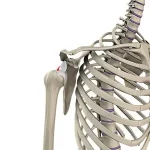
Shoulder instability is a chronic condition that causes frequent dislocation of the shoulder joint.A dislocation occurs when the end of the humerus (ball portion) partially or completely dislocates from the glenoid (socket portion) of the shoulder. A partial dislocation is referred to as a subluxation whereas a complete separation is referred to as a dislocation.
Shoulder Labral Tear
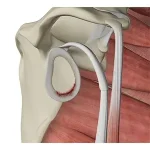
The shoulder joint is a ball and socket joint. A ball at the top of the upper arm bone (humerus) fits neatly into a socket, called the glenoid, which is part of the shoulder blade (scapula). The glenoid is surrounded by a ring of fibrous cartilage called the labrum for stabilization of the shoulder joint. The biceps tendon attaches inside the shoulder joint at the superior labrum of the shoulder joint. It is a long cord-like structure that attaches the biceps muscle to the shoulder and helps to stabilize the joint.
Shoulder Dislocation
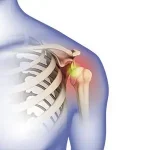
Sports that involve overhead movements and repeated use of the shoulder at your workplace may lead to sliding of the upper arm bone from the glenoid. The dislocation might be a partial dislocation (subluxation) or a complete dislocation causing pain and shoulder joint instability. The shoulder joint often dislocates in the forward direction (anterior instability), and sometimes in the backward or downward direction.
Shoulder Fracture
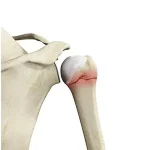
A break in a bone that makes up the shoulder joint is called a shoulder fracture. The shoulder is the most flexible joint in the body, enabling a wide range of movements. It is a ball-and-socket joint made up of three bones, namely the humerus (upper arm bone), scapula (shoulder blade) and clavicle. The head of the humerus articulates with the socket of the scapula called the glenoid cavity. The clavicle bone or collarbone is an S-shaped bone that connects the scapula to the sternum or breastbone.
Frozen Shoulder
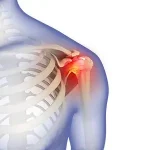
Frozen shoulder, also called adhesive capsulitis, is a condition in which you experience pain and stiffness in your shoulder. The symptoms appear slowly, worsen gradually and usually take one to three years to resolve on their own.The shoulder joint is comprised of bones, tendons, and ligaments that are encased in a capsule of connective tissue. Gradual thickening and tightening of this capsule surrounding the shoulder joint restrict shoulder movement causing a frozen shoulder.
Shoulder Trauma
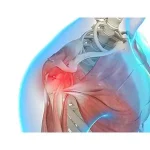
Shoulder injuries most commonly occur in athletes participating in sports such as swimming, tennis, pitching, and weightlifting. The injuries are caused due to the over usage or repetitive motion of the arms. Shoulder injuries cause pain, stiffness, restricted movements, difficulty in performing routine activities and a popping sensation.A sprain is the stretching or tearing of ligaments (tissues that connect adjacent bones in a joint).
Shoulder Disorders
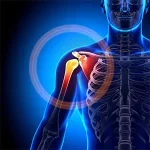
The shoulder is the most flexible joint in the body that enables a wide range of movements. Aging, trauma or sports activities can cause injuries and disorders that can range from minor sprains or strains to severe shoulder trauma.The shoulder joint is a ball and socket joint made up of three bones, namely the humerus, scapula, and clavicle. The head of the humerus (upper arm bone) articulates with the socket of the scapula (shoulder blade), which is called the glenoid.
